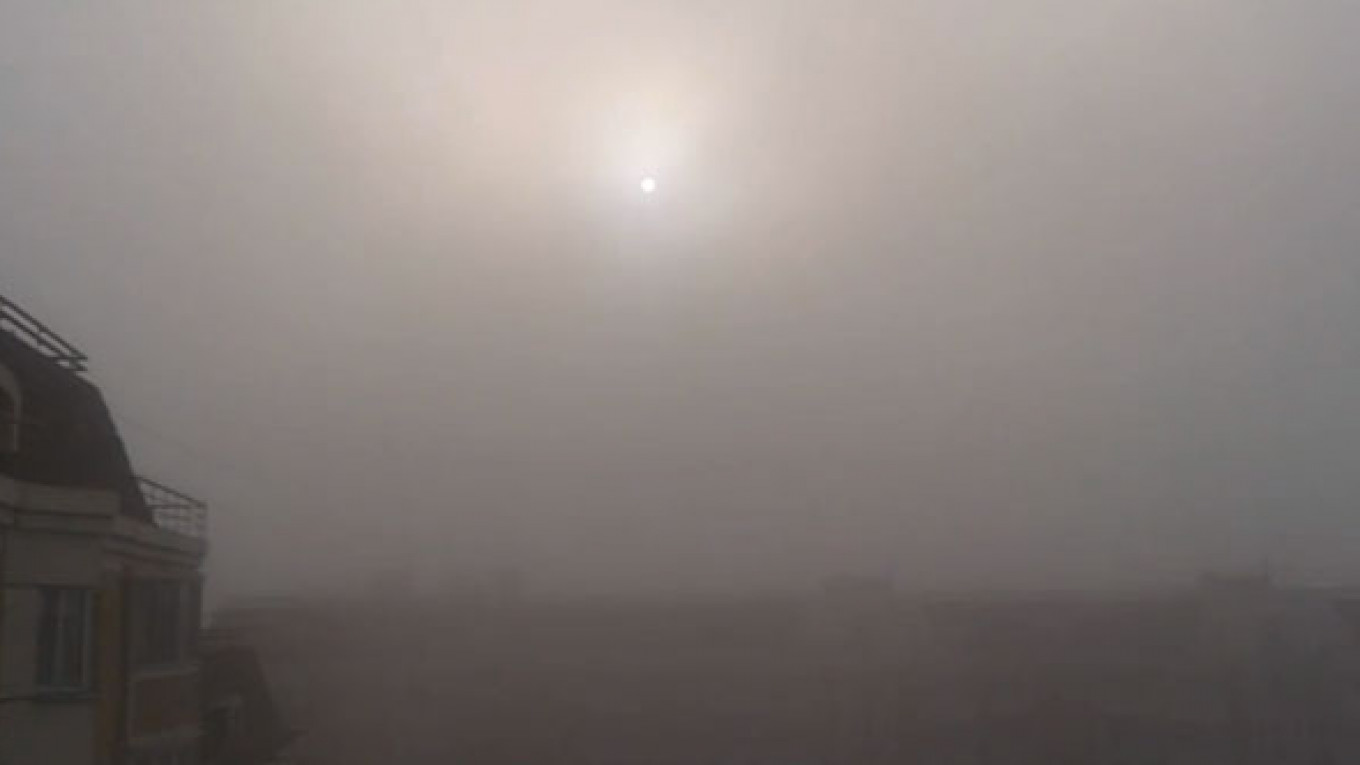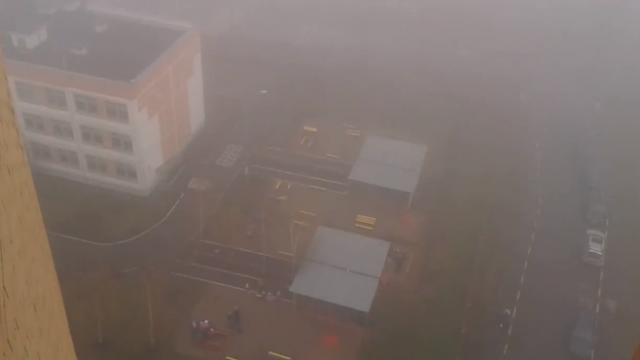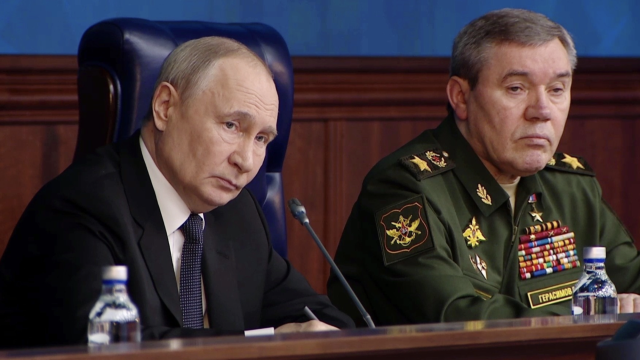Police in Moscow have launched a criminal case into the toxic fumes that plagued the city Monday, ordering a series of expert analyses to determine the culprit.
The move comes after some officials pointed the finger at a Gazpromneft refinery on the outskirts of the city Monday, saying the fumes resulted from an accident there — an accusation the company quickly denied.
Andrei Galiakberov, a spokesman for the Moscow police, said Wednesday that a series of expert analyses had been ordered, including chemical testing, as part of the criminal case on charges of atmospheric contamination.
Galiakberov said investigators also planned to question certain individuals over the matter, though he did not elaborate.
The charge of atmospheric contamination carries hefty fines and a maximum prison sentence of two years.
While police joined the hunt for the source of the pollution on Wednesday, officials from various government agencies still could not seem to agree on who or which enterprise was to blame.
Vladimir Stepanov, deputy head of the Emergency Situations Ministry, was cited by Gazeta.ru as saying the source of the fumes had not yet been determined.
The Federal Inspection Service for Natural Resources Use had already officially identified the culprit as the Gazpromneft factory, however, with the agency's head Konstantin Yeliseyev saying on Tuesday that the company had already been sent notice of its violation.
Yeliseyev said the chemical causing the putrid stench throughout the city was cumene, which was found to be at 30 times the maximum permissible level in certain areas on Tuesday, he said.
Earlier, the Emergency Situations Ministry had identified the fumes as hydrogen sulfide.
Numerous federal agencies were on a wild goose chase Tuesday trying to determine the source of the fumes. Prosecutors and investigators conducted checks at various industrial sites, along with representatives of the Emergency Situations Ministry and the Federal Inspection Service for Natural Resources Use.
While officials had recorded a spike in the concentration of noxious gases in the air on Monday, as some residents complained of experiencing headaches, dizziness and watery eyes, the level of toxins in the city's air had lowered to an acceptable level by Wednesday, according to Russia's federal environmental monitoring agency.
Contact the author at [email protected]
A Message from The Moscow Times:
Dear readers,
We are facing unprecedented challenges. Russia's Prosecutor General's Office has designated The Moscow Times as an "undesirable" organization, criminalizing our work and putting our staff at risk of prosecution. This follows our earlier unjust labeling as a "foreign agent."
These actions are direct attempts to silence independent journalism in Russia. The authorities claim our work "discredits the decisions of the Russian leadership." We see things differently: we strive to provide accurate, unbiased reporting on Russia.
We, the journalists of The Moscow Times, refuse to be silenced. But to continue our work, we need your help.
Your support, no matter how small, makes a world of difference. If you can, please support us monthly starting from just $2. It's quick to set up, and every contribution makes a significant impact.
By supporting The Moscow Times, you're defending open, independent journalism in the face of repression. Thank you for standing with us.
Remind me later.






